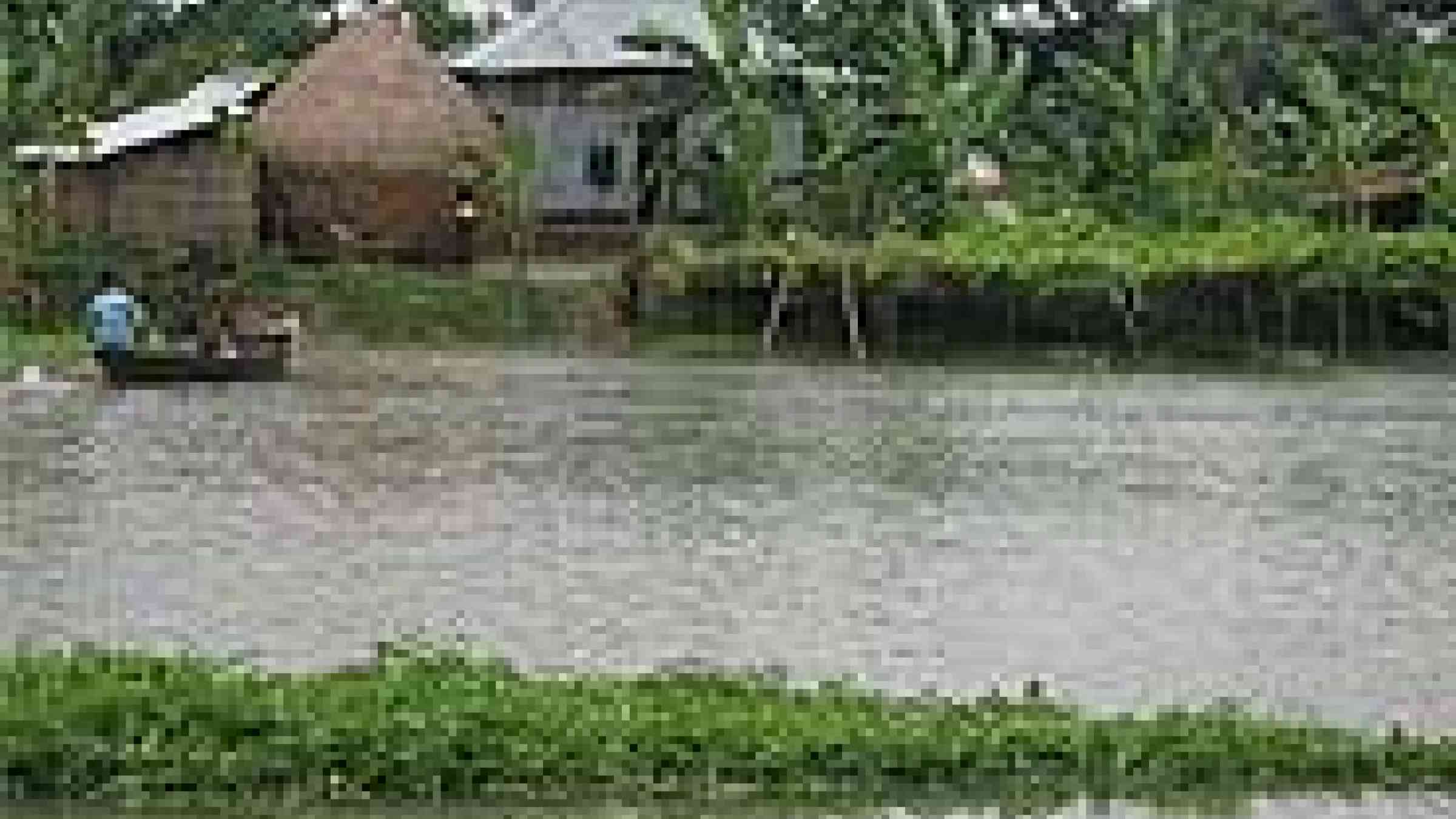Bangladeshi woman builds new life on higher ground

With the death of her husband two years ago, Julekha lost what little she had. A poor Bangladeshi woman, she had already sold her land and assets to pay for her husband's medical treatment. Since then she has struggled to feed herself, two sons (17 and 7) and a daughter (12). When food prices went up in the early part of 2008, the family had to skip two meals a day. She often had to borrow food from relatives to feed herself and her children just once a day.
The location of the family home made life even more insecure. They live in a village alongside the River Teesta in northern Bangladesh, one of the most food-insecure areas of the country. During the monsoons the river overflows its banks. Julekha, like thousands of her neighbours, had to move several times as her tiny mud house was washed away.
Prepare for natural disasters
Then Julekha enrolled in the Enhancing Resiliency (ER) project, one of the programmes that WFP has implemented together with the Government of Bangladesh and NGOs to respond to, and prepare for, natural disasters.
Julekha took part in a six-month Food For Training (FFT) course on disaster preparedness, which helped her to assess and thereby reduce disaster risks. It also helped her acquire skills that will enable her to generate her own income. Julekha received 2.5kg of rice and 37.5 taka (55c) every day during her time on the ER project.
Seven days of work
Julekha then joined 34 of her neighbours to raise her house, as well as those of the others in the group, above flood levels. This back-breaking work entailed collecting and carrying nearly 280 cubic metres of soil, weighing almost a ton, from the river banks and ditches and building a foundation for her new house on higher ground. Julekha’s house took seven days to raise, at a cost of just $300.
Since 2001, 1.3 million women have received training on disaster preparedness and 30,000 houses have been raised, with a further 4,000 planned for 2009.
A newly-confident Julekha says, “I have already started planting trees around my new house. I’d also like to try my hand at goat-rearing. But my dream is to buy or lease a piece of land to grow rice. Without WFP and the ER programme, I would never have dared aim so high and hope for a better life for my children.”